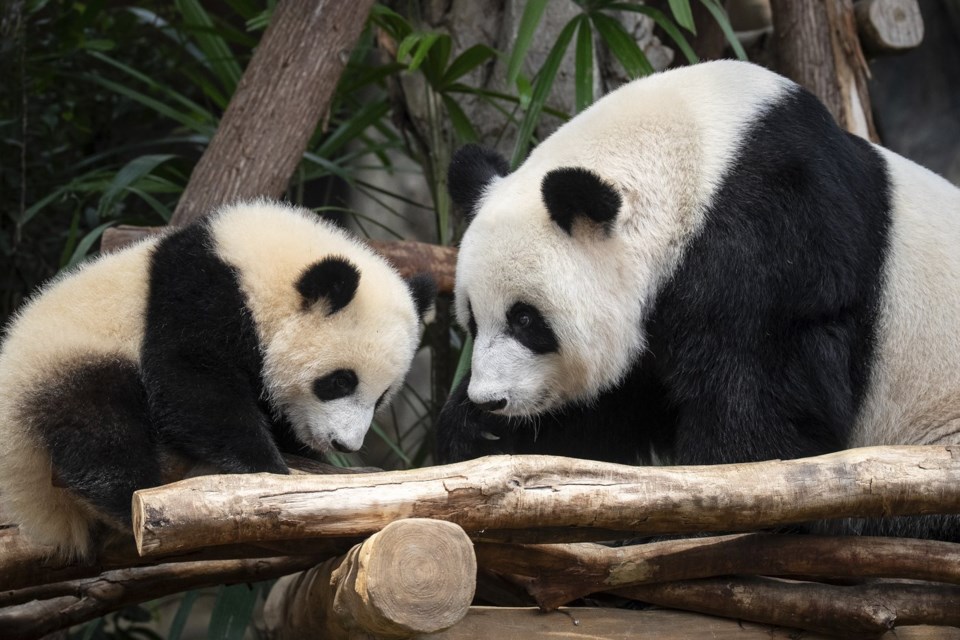HONG KONG (AP) — Hong Kong's first locally born giant pandas have finally been named and introduced as Jia Jia and De De.
The names of the cubs, affectionately known as “Elder Sister” and “Little Brother,” were announced Tuesday in a ceremony at Ocean Park, the theme park housing them, their parents and two other giant pandas that arrived from mainland China last year.
The names were the winning suggestions from residents in a naming contest that drew more than 35,700 entries.
The Chinese character “Jia,” from the female cub's name “Jia Jia,” carries a message of support and features an element of family and a sense of auspicious grace. The name embodies the prosperity of families and the nation and the happiness of the people, the park said.
The Chinese character “De," from the male cub's name, means to succeed, carrying the connotation that Hong Kong is successful in everything. De also has the same pronunciation as the Chinese character for virtue, the park said, suggesting giant pandas possess virtues cherished by Chinese people.
Ocean Park chairman Paulo Pong said they followed tradition by using Mandarin pronunciation for the pandas’ English names. He said “Jia" sounds like a word in the Cantonese term for elder sister, while “De De” sounds a bit like the Cantonese phrase for little brother. Cantonese is the mother language of many Hong Kongers.
“It's a very positive pair of names,” he said. “We have to be a bit creative here with the names.”
The cubs, who live with their mom, attracted crowds of visitors on Tuesday. Jia Jia explored a rock and walked around their area, while De De climbed a tree.
Visitor Polly Luk, a panda lover with an annual pass to the park, spent an hour in line to see the cubs.
“I’m so used to their old names. Even now they have new names, I'll still call them ‘Elder Sister’ and ‘Little Brother’," Luk said.
The twins' birth in August made their mother, Ying Ying, the world’s oldest first-time panda mom a day before her 19th birthday. Their popularity among residents, visitors and on social media raised hopes for a tourism boost in the city, where politicians touted the commercial opportunities as the “panda economy.”
Observers are watching whether housing six pandas helps the park revive its business, especially when caring for the animals in captivity is expensive. Ocean Park recorded a deficit of 71.6 million Hong Kong dollars ($9.2 million) last financial year.
The park recorded a nearly 40% growth in visitor flow and 40% increase in overall income during a five-day holiday beginning May 1 in mainland China, said Pong, who hopes the growth momentum will continue through summer, Halloween and Christmas seasons.
Pandas are considered China’s unofficial national mascot. The country’s giant panda loan program with overseas zoos has long been seen as a tool of Beijing’s soft-power diplomacy.
___
Associated Press video journalist Alice Fung contributed to this report.
Kanis Leung, The Associated Press




